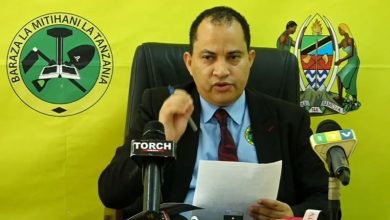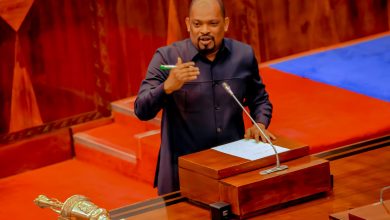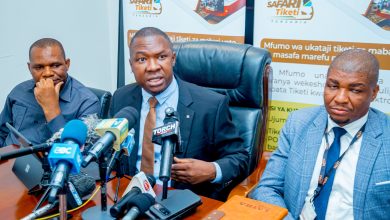WB, AfDB pledges 100tri/- to fund Mission 300

DAR ES SALAAM: THE African Development Bank Group (AfDB) and the World Bank (WB) have pledged a combined total of 40 billion US dollars (about 100tri/-), to fund Mission 300, an ambitious initiative aimed at providing 300 million Africans with access to electricity by 2030.
AfDB President, Dr Akin wumi Adesina announced the financial commitments during his opening remarks at the African Heads of State Summit in Dar es Salaam yesterday.
He revealed that 18.2 billion US dollars (about 46tri/-) of the pledged amount would come from the AfDB, while the WB would contribute the remain nounce their commitments either today or after the summit,” Adesina said. ing 22 billion US dollars (about 55.5tri/-), all working towards the goal of achieving universal electricity access across the continent.
Dr Adesina also highlighted pledges made by other develop ment partners on the first day of the summit, including the President of the Islamic Development Bank, who committed 2.65 billion US dollars (about 6.7tri/-) and the President of the Asian Infrastructure Investment Bank, who pledged 1.5 billion US dollars (about 3.8tri-).
Additionally, the President of the OPEC Fund announced 1 billion US dollars (about 2.5) in support.
ALSO: NATIONAL ENERGY COMPACT: Samia unveils pathway
“We are confident that other development partners, both here and beyond, will join us and an He insisted on the importance of working closely with the private sector, urging African leaders to show personal leadership in ensuring the success of the initiative.
The Mission 300 initiative comes in response to the fact that over 570 million Africans still lack access to electric ity and more than one billion people live without clean cook ing solutions.
Dr Adesina noted that the lack of electricity has been reducing Africa’s GDP by 2 to 4 per cent.
However, he noted positive progress, citing that access to electricity in Africa reached 52 per cent in 2024, up from 39 per can achieve the Mission 300 goals. cent in 2015.
This improvement is attributed to the AfDB’s en ergy development programme, launched in 2016, which has helped provide electricity access to approximately 25 million people.
Dr Adesina emphasised that Mission 300 is a global move ment supported by the African Union Commission and nu merous international partners, including the Rockefeller Foun dation, Sustainable Energy for All and the Global Energy Alliance for People and Planet.
He acknowledged the Rockefeller Foundation for its 20 million US dollars (about 50.4bn/-) contribution, which helped prepare the National Energy Compacts documents outlining how African countries.
The private sector is also encouraged to play a key role in expanding both grid and off grid systems to ensure widespread access to electricity across the continent.
WB President, Mr Ajay Banga insisted on the importance of Mission 300, linking it to job creation and broader development goals for Africa.
He pointed out that over the next decade, 316 million young people in Africa will enter the workforce, but the current electricity infrastructure can support only 150 million jobs.
He stressed that Mission 300 is vital for addressing this gap. “It’s not just about clean cooking; it’s not just about healthcare; it’s about people, their optimism and their hope for dignity. This is the corner stone of the jobs agenda and the foundation for future development,” Mr Banga said.
He added that the World Bank is ready to collaborate with other develop ment partners to fund universal electricity access across Africa. President of the Rockefeller Foundation, Dr Rajiv Shah, commended Tanzania’s President Dr Samia Suluhu Hassan for her leadership in hosting the summit.
He praised the summit for fostering strategic partnerships aimed at expanding electricity access in Africa, stating, “Together, we can achieve much more impact than if we work alone.”




